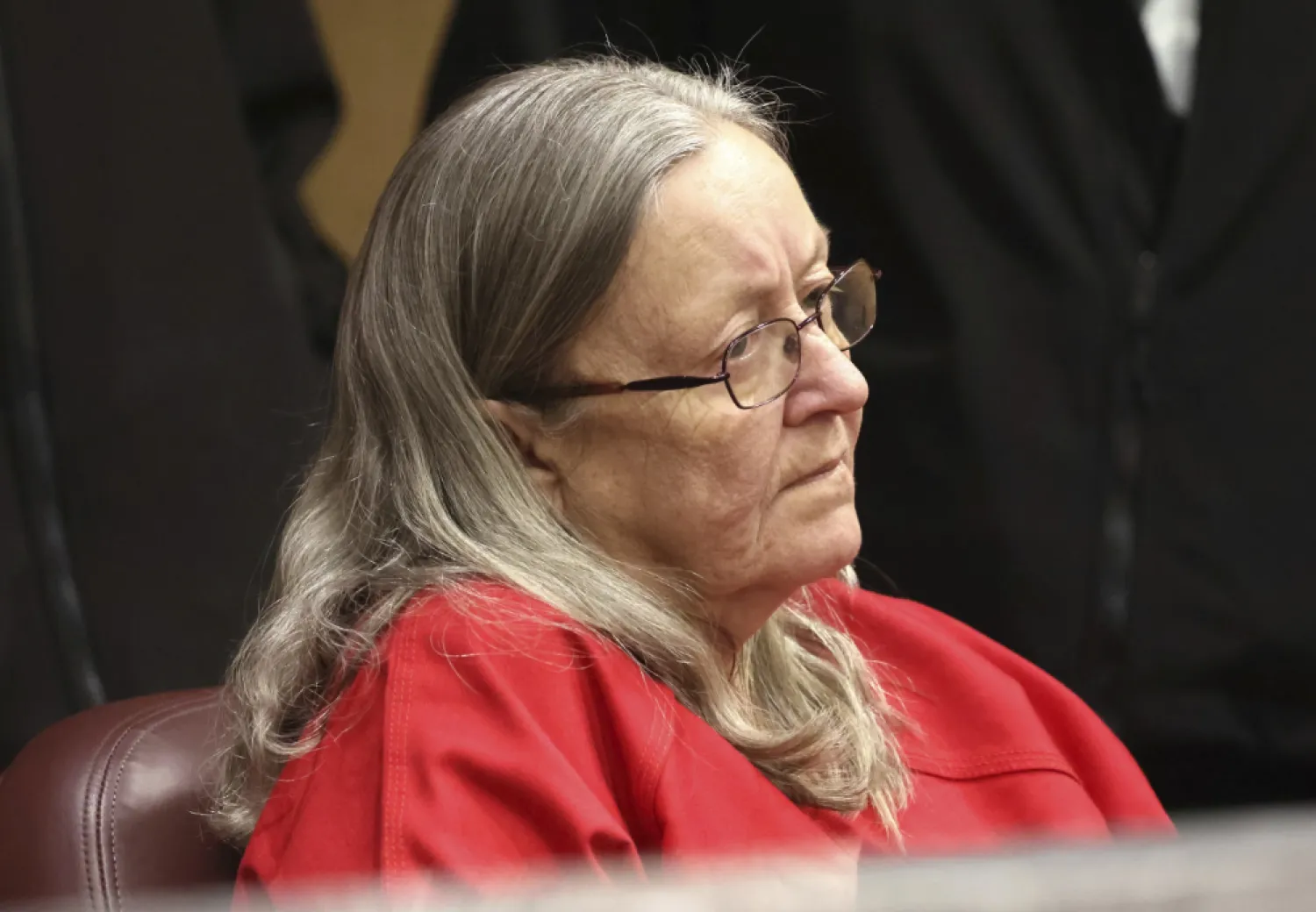A former babysitter pleaded guilty to manslaughter Wednesday for the 2019 death of a man she was accused of disabling as an infant 40 years ago and was sentenced to three years in prison, finally admitting that she hit him numerous times.
Terry McKirchy, 62, accepted a plea deal for the death of Benjamin Dowling, who died at 35 after a life of severe disabilities caused by a brain hemorrhage he suffered in 1984 when he was 5 months old while at McKirchy’s suburban Fort Lauderdale home, The AP reported.
Investigators have long believed she caused the injury by shaking him, but she had always denied hurting him even after pleading guilty in 1985 to injuring him.
Rae and Joe Dowling said after the hearing that they are glad McKirchy admitted to hurting their son, but nothing will bring him back or get him the life he would have had if she hadn't. He never walked, talked or ate on his own and spent his life in a wheelchair.
“She will have to live with this,” Rae Dowling said.
“We just have to be strong and move forward,” Joe Dowling said.
In a letter of apology read to Dowling's parents by her attorney, assistant public defender David Fry, McKirchy said she was feeling overwhelmed and exhausted by taking care of numerous children and struck him, causing his injuries. But she provided no details.
Before the plea deal, she had been charged with first-degree murder and faced a possible life sentence.
“It was in a state of impulse and anger that I struck Benjamin while he and other children were crying,” she wrote. “Your life and Benjamin's life were truly harmed by me and I am truly sorry.”
Shackled and dressed in an orange jail jumpsuit, McKirchy never showed any emotion during the 90-minute hearing while her letter was read, as Dowling's mother and sister talked about his life or during a photo montage showing him through the years with his family.
“Benjamin taught us all many valuable lessons, and everyone who knew Benjamin was better because they did know him,” Rae Dowling told Circuit Judge George Odom Jr. during the hearing.
Pam Chestnutt, her former best friend and Benjamin's cousin, told the court she knew McKirchy had a bad temper but would not have not believed her capable of hurting an infant like that, though eventually came to the realization she could. She said what especially hurt is that in the days after Benjamin was injured, McKirchy repeatedly told her she had not hurt him.
“You sat with me face to face and you denied doing anything to that baby. You told me Benjamin fell off the couch," she told McKirchy. “You lied straight to my face."
A Broward County grand jury indicted McKirchy, who now lives in Sugar Land, Texas, with first-degree murder in 2021 after an autopsy concluded Dowling died from his decades-old injuries. She had voluntarily entered the Broward County Jail in May to begin her sentence after the deal was close to being finalized. Prosecutor Pascale Achille said the case took three years because McKirchy's attorneys had to do their own investigation and then a plea had to be negotiated.
This isn't the first time McKirchy has taken a deal in connection with Dowling's injuries, receiving an exceptionally light sentence after pleading no contest to attempted murder in 1985. Then six months pregnant with her third child and facing 12 to 17 years in prison, she was sentenced to weekends in jail until giving birth. She was then freed and put on probation for three years.
At the time, she insisted she was innocent, telling reporters that her “conscience is clear." She said then that she took the deal because wanted to put the case behind her and be with her children.
Prosecutors called the sentence “therapeutic” but didn’t explain at the time. Ryal Gaudiosi, then McKirchy’s public defender, said the sentence was “fair under the circumstances.” He died in 2009.
Achille said she can't explain why McKirchy was given such a light sentence 40 years ago except to say “it was a different time.”
Rae and Joe Dowling had been married four years when Benjamin was born Jan. 13, 1984. Both Dowlings worked, so they hired McKirchy, then 22, to babysit him at her home.
Rae Dowling told investigators that when she picked up Benjamin from McKirchy on July 3, 1984, his body was limp and his fists were clenched. She rushed him to the hospital, where doctors concluded he had suffered a brain hemorrhage from severe shaking. McKirchy was arrested within days.
The Dowlings told reporters in 1985 they were stunned when prosecutors told them minutes before a court hearing of the plea deal McKirchy would receive. They said Wednesday that they are still stunned by that sentence.
The Dowlings had two more children and would take Benjamin to their games and performances as they grew up. The photo montage during the hearing showed his family worked hard to make him part of school and family outings, weddings, vacations and other milestones.
“Growing up, Benjamin taught me and countless others invaluable lessons about compassion, empathy, patience and understanding,” said his younger sister, Melissa Dowling. “Benjamin's presence was a constant source of inspiration. He never walked or talked or got the chance to say, ‘I love you.’”
The family moved to Florida’s Gulf Coast in the late 1990s. Benjamin died at their home on Sept. 16, 2019.
“He was so strong. We thought he would live forever,” his mother said.









